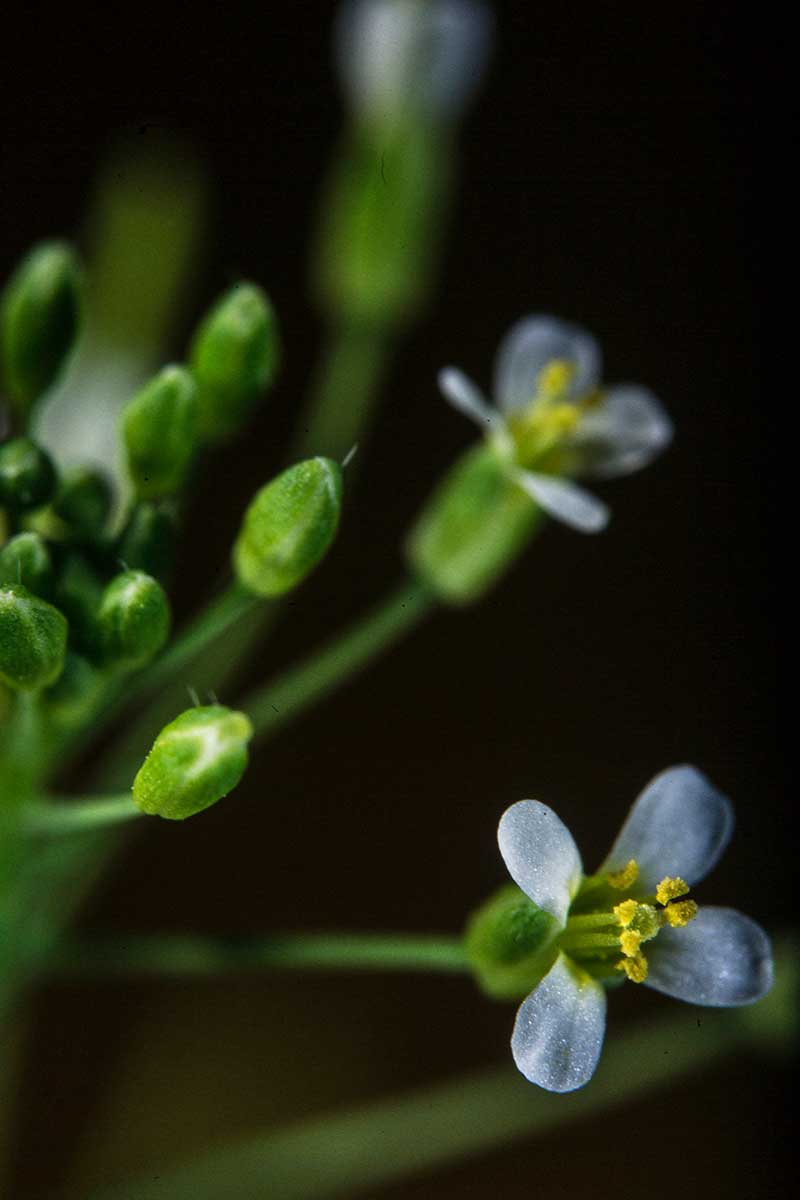
Botanist Glen Uhrig studies the biological clocks of Arabidopsis thaliana plants, a relative of canola. Photo credit: Jean Weber. CC by 2.0
Much like humans, plants are regulated by periods of light and dark. But for plants, these cycles are a matter of life and death, explained plant biologist Glen Uhrig. And for biotechnologists, these cycles open up a new world of possibilities.
"Central to a plant's existence is the ability to harvest light, to anticipate when light will be present next, and to respond to the presence of light," said Uhrig, new assistant professor in the Department of Biological Sciences. "A plant's anticipation of and response to light over a 24-hour period is called a diurnal cycle."
Understanding how metabolic processes of a plant are diurnally regulated holds great potential for the engineering of and selective breeding of new, more fruitful crops.
In his work, Uhrig studies the intersection between cell signalling and plant cellular processes and how these processes are affected over a diurnal cycle. Focused on the plant Arabidopsis thaliana, a relative of canola, Uhrig uses proteomics to assess the inner workings of and changes to various biological systems within the plant during different phases of the diurnal cycle. Proteomics, Uhrig explains, allows for the systems-level study of proteins in a specific organism, which then allows scientists to examine global changes within plant systems at the protein-level.
Fine tuning biotechnology
"This research allows us to finely manipulate certain behaviours or pathways in plants to express certain desirable traits," explains Uhrig. For instance, scientists may be able to accelerate plant reproductive cycles or enhance their nutrient efficiency, both important traits for agriculture worldwide. "By understanding plant systems at the protein-level, we can see where functional changes are occurring, hopefully leading to new targets for crop breeding."
Prior to joining the University of Alberta, Uhrig was an Marie-Curie Plant Fellow and an NSERC postdoctoral fellow at the Swiss Federal Institute of Technology (ETH) in Zurich,